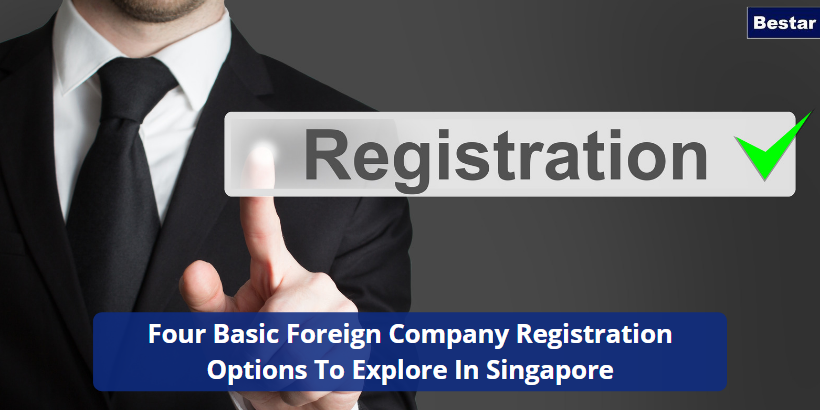Singapore has been a business hub for a few decades now. Therefore, it has seen a significant rise in company registrations from foreign investors. But a successful establishment requires you to understand various options.
This article explains various company registration options that you can explore in Singapore before you actually get a registration.
1. Private Limited Company:
This type of company needs to have 50 or less shareholders. It is one of the most commonly used business structures in Singapore. Moreover, it allows complete foreign ownership.
You can have the share capital for as little as SGD 1 and no one will raise a concern. Such a structure is easy to establish and its processing takes nothing more than 24 hours. The shareholders remain protected from the liabilities in case the business runs into losses.
The investors can invest into the business to help with the company and business expansion. But you will need a resident director and resident company secretary. In addition to this, the company should have a registered physical office that is based in Singapore.
The documentation required:
- Approval for the company’s name
- Description of the business activity
- Shareholding structure
- Shareholder agreement
- Registered and valid address
- Identity proof of shareholders, directors, and company secretary
- All the associated articles.
2. Limited Liability Partnership (LLP):
An LLP happens to be a very convenient business structure to conduct certain business types in Singapore. LLP is the right choice for professionals like accountants, lawyers, or architects. Also, it can include private equity funds with a very specific number of investors.
Foreign individuals should book a firm like Bestar Services to understand and wade through the registration procedures thoroughly. With this type, you can operate as a partnership firm while having separate legal conduct.
This means, it may look like a private limited company like a corporate structure and has a legal persona different from its partners. The partners within the LLP are not accountable for liabilities or debts thus incurred. But a partner can be held liable for claims if he has conducted wrong actions.
The documentation required:
- The proposed name for the LLP
- All the details and particulars of the LLP partners/managers. This should be in accordance with the foreign passport/Singapore identification.
- Residential address details of all the LLP partners.
- Declaration of the compliances
- Details of the registered address for the LLP.
- Permission to work as a manager and statement of non-disqualification to act as a manager.
- If the partner happens to be a company – you will need registration of the company.
3. Foreign Company Branch Office:
Branch offices are generally set up by the offshore companies. The sole reason for doing this is to address tax implications based on the company’s home jurisdiction. The branch is not a resident of Singapore solely for tax purposes.
Therefore, it cannot derive the benefit of Singapore’s double tax treaty network. It does not get the tax concessions granted towards Singapore incorporated companies. This structure is slightly complicated to establish in Singapore.
Because, you have to provide all the details about the branch office as well as the parent company to ACRA for successful registration. Also, you will need an Authorised Representative for the respective branch.
The documentation required:
- Name and registered office details of the foreign company.
- Certified copy of the foreign company’s incorporation certification.
- Certified copy of the foreign company’s constitution.
- Notice of the foreign company’s registration number, business description, and type of legal entity.
- Particulars of the foreign company’s directors.
- Details of one Singapore resident who serves as branch company’s authorised personnel.
- The consent statement from the branch company’s authorised representative who consents to the appointment.
- Details and working hours of the branch office in Singapore
- Latest financial statements of the foreign company after they underwent the audit process.
4. Foreign Company Representative Office:
A foreign company representative office is generally built to see whether they would be able to venture into the new market in Singapore. It also determines the viability of establishing a successful business venture. The representative office can stay for a minimum of three years.
Within these three years, it should get converted into a private limited company. It could either work as a branch of the foreign company after this conversion or should close itself down. Every year, it will have to undergo an evaluation and re-approval process within these three years.
A representative office can only collect market statistics and other information required to establish the business. It cannot conduct business in the name of an offshore foreign company. It cannot negotiate a business deal or define contracts on the behalf of the parent company.
The documentation required:
- Completed application
- Copies of parent company’s certificate of incorporation or registration.
- Copies of parent company’s latest annual report and audited accounts.
Conclusion:
Bestar helps you start and establish a successful business venture in Singapore. We offer a thorough understanding of all the business structures and we guide you to adopt the right structure for your business type. Our team can handle your company incorporation and registration process starting from scratch. We ensure that we offer everything you need while you start and acclimatize to your new business in Singapore.







